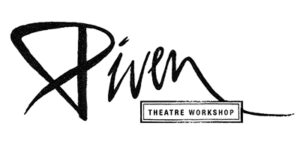Storytelling and Identity
The Impact of Corporate Workshop Training: Storytelling and Identity
Experience for yourself why Forbes magazine stresses the importance of improvisation training in the business world. From Forbes’ 2014 article “Why Improvisation Training Is Great Business Training” by Columbia University lecturer Jesse Scinto:

“Studies have shown that people can improve their communication skills and lower their anxiety with regular practice. Improv’s low-stakes training increases the likelihood that team members will feel comfortable communicating in a variety of work situations. ‘Yes, and’ is the key.”
For over 50 years, Piven Theatre Workshop has maintained both a professional theatre and a nationally acclaimed actor training center for children and adults. The mission of Piven Theatre Workshop is to encourage a process of creative exploration that celebrates each individual’s unique voice through an ensemble-based, community-oriented approach to theatre training and performance.
Our corporate workshops are a way to support the community in the workplace. Acting and improv training is education that prioritizes listening to one’s ensemble members. At Piven Theatre, our history and acting methodology is steeped in the practice of empathy and a strong ensemble. We celebrate identity through storytelling. We invite you to join us in creating the best corporate improv workshop for the needs of your organization. Through activities based in listening and inclusion, we are equipped to support teams with the goal of fostering community.
Our classes focus on developing effective communication, imaginative thinking and problem solving skills that are important in any field. Many of our adult students speak about their experience in our classes as a way to reignite their creative spirit and to unlock renewed energy through play. The joy students find in our workshops paves the way for participants to celebrate their ensemble. Our teachers have created a curriculum that respects all the voices in the room and gives participants the opportunity to express themselves fully.
In our acting workshops, participants will have the opportunity to share their unique voices and stories. Our workshops are a place to celebrate differences. The different perspectives that team members bring to the table are an asset and help foster growth through new ideas. We aim to create a structured experience to investigate how team members can work together to find a healthy, positive work environment. Theatre training honors the voices in the room and creates space for the exploration of new ideas. This training in listening and storytelling contributes to the creation of a just and productive workplace.
